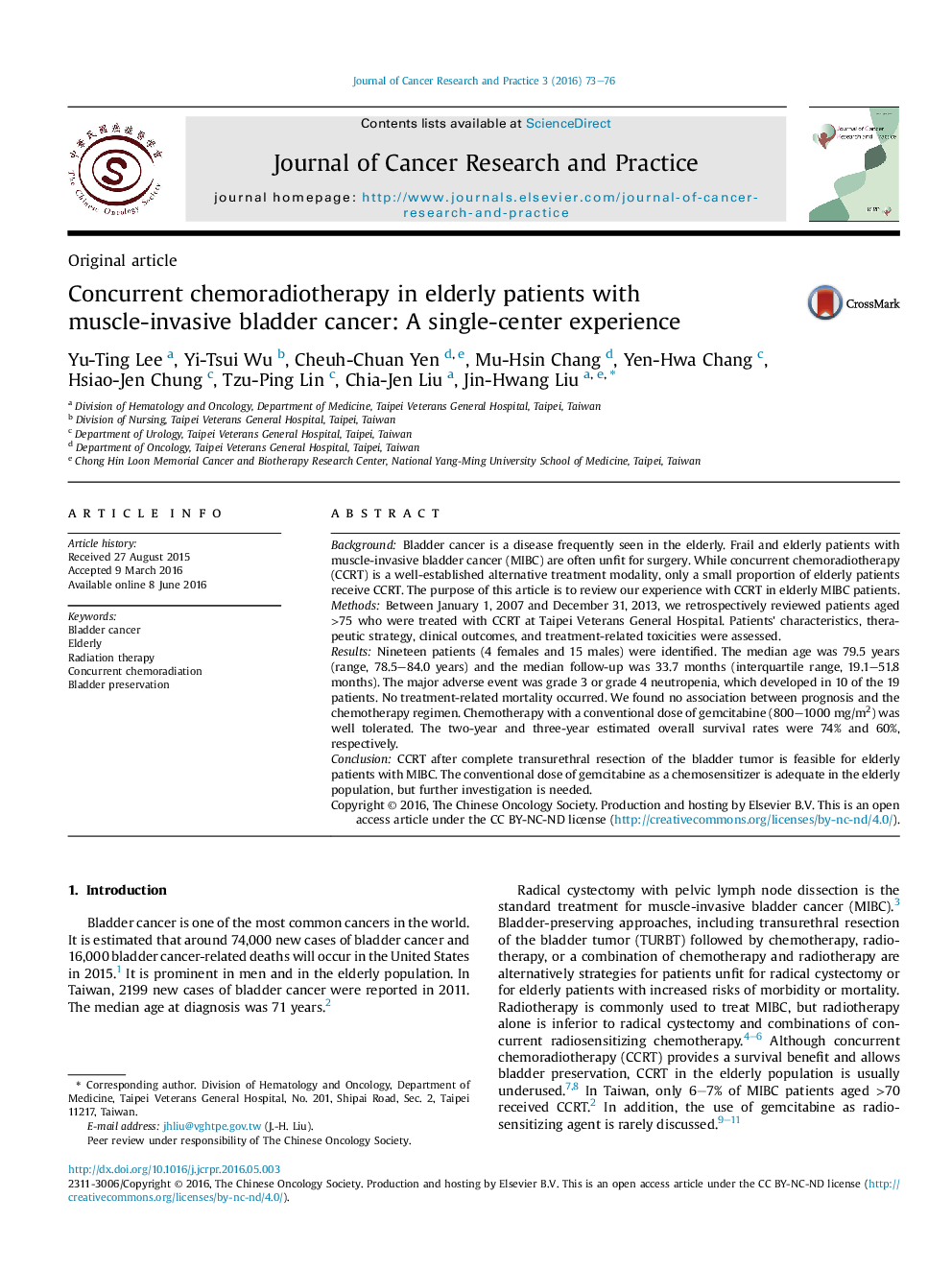| Article ID | Journal | Published Year | Pages | File Type |
|---|---|---|---|---|
| 3988762 | Journal of Cancer Research and Practice | 2016 | 4 Pages |
BackgroundBladder cancer is a disease frequently seen in the elderly. Frail and elderly patients with muscle-invasive bladder cancer (MIBC) are often unfit for surgery. While concurrent chemoradiotherapy (CCRT) is a well-established alternative treatment modality, only a small proportion of elderly patients receive CCRT. The purpose of this article is to review our experience with CCRT in elderly MIBC patients.MethodsBetween January 1, 2007 and December 31, 2013, we retrospectively reviewed patients aged >75 who were treated with CCRT at Taipei Veterans General Hospital. Patients' characteristics, therapeutic strategy, clinical outcomes, and treatment-related toxicities were assessed.ResultsNineteen patients (4 females and 15 males) were identified. The median age was 79.5 years (range, 78.5–84.0 years) and the median follow-up was 33.7 months (interquartile range, 19.1–51.8 months). The major adverse event was grade 3 or grade 4 neutropenia, which developed in 10 of the 19 patients. No treatment-related mortality occurred. We found no association between prognosis and the chemotherapy regimen. Chemotherapy with a conventional dose of gemcitabine (800–1000 mg/m2) was well tolerated. The two-year and three-year estimated overall survival rates were 74% and 60%, respectively.ConclusionCCRT after complete transurethral resection of the bladder tumor is feasible for elderly patients with MIBC. The conventional dose of gemcitabine as a chemosensitizer is adequate in the elderly population, but further investigation is needed.
